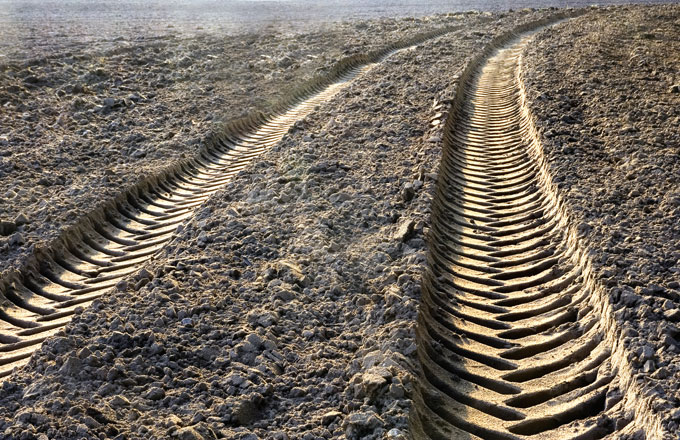The Climate Bill’s Second Stage – a recap

31 May 2021
The highly-anticipated Climate Bill is up for Select Committee Stage this week. It’s come a long way from when its first iteration was published back in October.
We’ll be following all the ins and outs of Select Committee Stage of course, but in the meantime, we wanted to look back at what happened during the Second Stage.
(Just a quick note: a Bill’s Second Stage is when it’s debated in the Dáil. TDs can give their statement on the Bill and they often voice their recommendations on what should be amended. Once the debate finishes up, it then goes onto the Select Committee Stage following a vote).
There were some common themes that kept cropping up during the debate, so here’s some that we picked up on.
The Bill’s ambition
Certain TDs flagged a letter from John Sweeney, Andrew Jackson and Barry McMullin who warned that the Bill must be amended if it is to halve emissions by the end of the decade.
The authors particularly raised issue with the inclusion of a new subsection 6A(5), which they find to be “fundamentally flawed, being at once uncertain in law and mistaken in science”.
The lack of specificity in the section could allow less than a 7 per cent year-on-year reduction in emissions, as was promised in the Programme for Government, they concluded.
Catherine Connolly TD highlighted the concerns they raised and told the Dáil while she was no expert in the area of climate law or science, she was “well able to read a letter and see the concerns raised therein” and recommended the matter be dealt with in Committee Stage.
Rural livelihoods
There was a considerable amount of criticism of the Bill from Independent TDs, many of whom said it neglected to take account of rural Ireland.
Michael Collins TD expressed his concern that it would incur increased costs of living for rural communities. Carol Nolan TD was quite scathing in her assessment, accusing Fianna Fáil and Fine Gael of being “very happy to let the Green Party run riot and destroy rural Ireland.”
Other Independent TDs said they were not included in pre-legislative scrutiny of the Bill and Green Party TD Roderic O’Gorman rebuked the accusation.
Deputy Danny Healy-Rae had earlier claimed that the Bill had only been dealt with in private session, but Deputy O’Gorman highlighted the fact that pre-legislative scrutiny had twenty hours of public session and 30 hours of private meetings in which “Deputies and Senators contributed their opinions and fought long battles with one another”.
“When the hard work was being done by the joint committee to bring the legislation forward, where were those Deputies?” Deputy O’Gorman asked.
Those sessions were where, “those Deputies who are so irate today could have had an input, but they did not choose to,” he concluded.
Liquified Natural Gas (LNG)
A number of TDs expressed their dissatisfaction that a ban on LNG imports was not included in the Bill, despite the Joint Oireachtas Committee on Climate Action’s recommendation to have such a measure in place.
Deputies Thomas Pringle, Holly Cairns and Sorca Clarke were just some of the representatives concerned by the omission.
The Government has instead issued a policy statement on banning imported fracked gas, which would see a moratorium on the practice pending a completed energy security review.
A total ban, according to the Department, is not currently possible as “to do so would require changes to international rules, such as European energy laws.”
However, the Human Rights Law Clinic in Galway have found that a ban would in fact be legally permissible.
Just Transition
The minimal inclusion of a Just Transition was also heavily criticised by multiple TDs, who are calling for its principles to be integrated throughout the Bill.
Barry Cowen TD, a Fianna Fáil representative from Laois-Offaly, highlighted numerous ongoing failures with a Just Transition for the midlands. Sinn Fein’s Eoin Broin TD welcomed his contribution and noted that “the Government is not even engaging with its own backbenchers who are clearly and legitimately raising these issues.”
“The biggest task for the climate committee and then the Oireachtas is to ensure that a just transition is placed at the very heart of the Bill,” Deputy O’Broin said.
The term, which would oversee a transition of workers and communities who are tied to fossil fuel production, was not mentioned in the initial draft of the Bill, which was “very concerning” to Sinn Fein TD Mairead Farrell.
The weak mentions that have been included in the revised Bill are peppered with language such as “best endeavours” and “in so far as is practicable”, Deputy Farrell said.
“The Bill fails to grasp the opportunity provided to reimagine and recreate the society in which we live,” she concluded.
Data Centres
Other TDs also voiced their concern about the climate risks posed by data centres, which are projected to account for over a quarter of Irish energy by 2028.
EirGrid has also previously warned that in just five years the twin demands of data centres and electric cars could exceed our own energy supply.
“We need assurance from Government that our move towards a different energy system will not be compromised by growing energy-heavy industries,” Social Democrats TD Jennifer Whitmore told the Dáil.
To date, there are 53 operational data centres in Ireland, with 8 more under construction and 26 with planning approval.
Their total number is expected to double by 2025.
Additional reporting by Shauna Burdis and Thomas Hamilton
[x_author title=”About the Author”]







